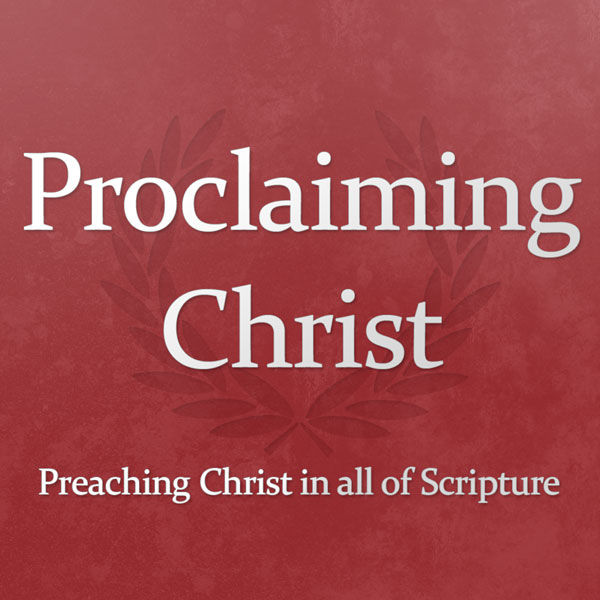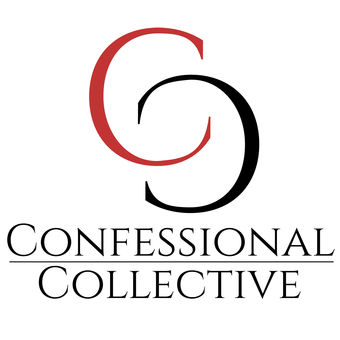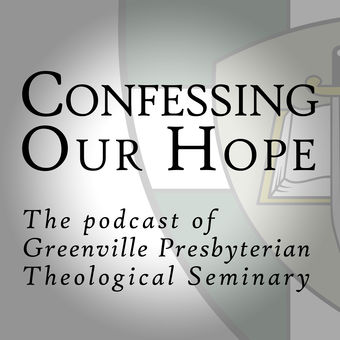
Proclaiming Christ
Reformed Theological Resources
- Mark 1:14–45 — What Is the Gospel

There is a transition that occurs between the ministry of John the Baptist and the Ministry of Jesus. John begins to decrease, and Jesus begins to increase. The Lord Jesus teaches and shows what the gospel is by his words and actions. We see how Jesus himself is the subject matter of the good news—the gospel, and his words and actions reveal the nature of the kingdom.
Participants: Jim Cassidy, Mark A. Winder, Robert Arendale
4 September 2024, 5:00 am - Genesis 34 — Rape and Retribution

Something significant is missing in Genesis 34 as we read one of the most shocking stories of Scripture. How do you preach Christ in a text where a violent act is met with severe retribution? Are Jacob’s sons exercising just judgment or personal revenge? Does this episode parallel the later conquest of Canaan? We seek to answer these questions and show how the ravages of sin can be undone; how the unclean can be made clean. There is good news for the Christian in this dreadful story.
Participants: Jim Cassidy, Mark A. Winder, Robert Arendale
10 July 2024, 5:00 am - Ephesians 2:11–19 — Brought Near in Christ

Paul calls upon his readers to remember five realities of their former life: separated from Christ, alienated from the commonwealth of Israel, strangers to the covenants, having no hope, and without God. But the glorious good news is “BUT NOW in Christ Jesus” those who were far off have been brought near. Jesus, through his death and resurrection, has reconciled the repentant sinner to God, so that he is no longer a stranger, but a member of God’s household.
Participants: Jim Cassidy, Mark A. Winder, Robert Arendale
3 July 2024, 5:00 am - Ephesians 2:4–10 — The Good News

Although humanity is dead and lost in sin, with no way to merit favor with God, God is rich in mercy and loves his people with a great love. Those whom God loves are then saved only through the death, resurrection, ascension, and session of Jesus Christ. Believers then, through their union with Christ, are privileged to have died with him, been resurrected with him, and ascended with him to the heavenly places. This glorious news should humble us and lead us to worship and walk in holiness.
Participants: Jim Cassidy, Mark A. Winder, Robert Arendale
5 June 2024, 5:00 am - Mark 1:1–15 — The Beginning of the Gospel

In this episode, we introduce the Gospel of Mark. We also explore how Mark introduces us to the person of Jesus Christ and the Gospel. Of special interest is the redemptive nature of the Gospel. This is shown by Mark’s high Christology (Jesus is God), John’s baptism, and Jesus’ successful resistance of Satan’s temptation.
Participants: Jim Cassidy, Mark A. Winder, Robert Arendale
15 May 2024, 5:00 am - Genesis 33 — Reconciled with God and Man

Moses brings us to the height of the conflict between Jacob and Esau. We look at the need to preserve the tension in the story while connecting it to the larger narrative. Here we learn how Jacob’s humility leads to a resolution of conflict. We see also the high point of the story — the building of the altar, as Jacob has reconciled with God and man.
Participants: Mark A. Winder, Robert Arendale
28 February 2024, 6:00 am - Ephesians 2:1–10 — The Bad News (Part One)

In this episode, we consider the reality that mankind, apart from God’s glorious grace, is completely and totally lost in sin. Before Paul moves to extol the riches of God’s grace in Eph 2:4–10, he first digs down deep to expose the reality of sinful man’s helpless estate. The more we understand the depth of our sin, the more we will fall to our knees in wonder of God’s mercy in Christ. We must first reckon with the bad news before we bathe in the good news.
Participants: Mark A. Winder, Robert Arendale
21 February 2024, 6:00 am - Psalm 18 — David’s Profession of Righteousness

In this episode, we explain the meaning of David’s profession of righteousness. How can David speak about himself as being without guilt, relative to God’s law, when we know he was a sinner? If our salvation is by grace alone, then how can David say that God rewarded him for his righteousness by saving him from his enemies?
Participants: Jim Cassidy, Mark A. Winder, Robert Arendale
14 February 2024, 6:00 am - Ephesians 1:18–23 — Paul’s Prayer (Part Two)

In part two of Paul’s Prayer we return to consider Paul’s prayer for the Ephesian believers. Yes, Paul’s burden is that the Ephesian believers would know the Lord. But what specifically does he pray for them? What specifically, in this passage, does he want them to know? Join us as we reflect on Paul’s — and the Lord’s — burden for his people.
Participants: Mark A. Winder, Robert Arendale
7 February 2024, 6:00 am - Ephesians 1:15–18 — Paul’s Prayer (Part One)

In part one of Paul’s Prayer, we will examine how the apostle Paul prays for the Spirit to be at work so that Christians can know God more. Paul’s thankfulness for the believers at Ephesus moves him to constant prayer that God would soften their hearts and open their eyes to hear and believe the gospel. This should be our burden in prayer: that we would know God more.
Participants: Mark A. Winder, Robert Arendale
17 January 2024, 6:00 am - Genesis 32:13–32 — Wrestling with God

Jacob expects a conflict with Esau but instead ends up wrestling with an unknown assailant, who can clearly best him at any moment. But when that moment comes, Jacob will not release his hold until he receives a blessing. The content of that blessing points to the God who will not forsake Jacob and will fulfill his covenant promises.
Participants: Jim Cassidy, Mark A. Winder
10 January 2024, 6:00 am - More Episodes? Get the App
Your feedback is valuable to us. Should you encounter any bugs, glitches, lack of functionality or other problems, please email us on [email protected] or join Moon.FM Telegram Group where you can talk directly to the dev team who are happy to answer any queries.
 Confessional Collective
Confessional Collective
 Westminster Confession
Westminster Confession
 Confessing Our Hope: The Podcast of Greenville Presbyterian Theological Seminary
Confessing Our Hope: The Podcast of Greenville Presbyterian Theological Seminary
 East of Eden
East of Eden
 Theology Simply Profound
Theology Simply Profound